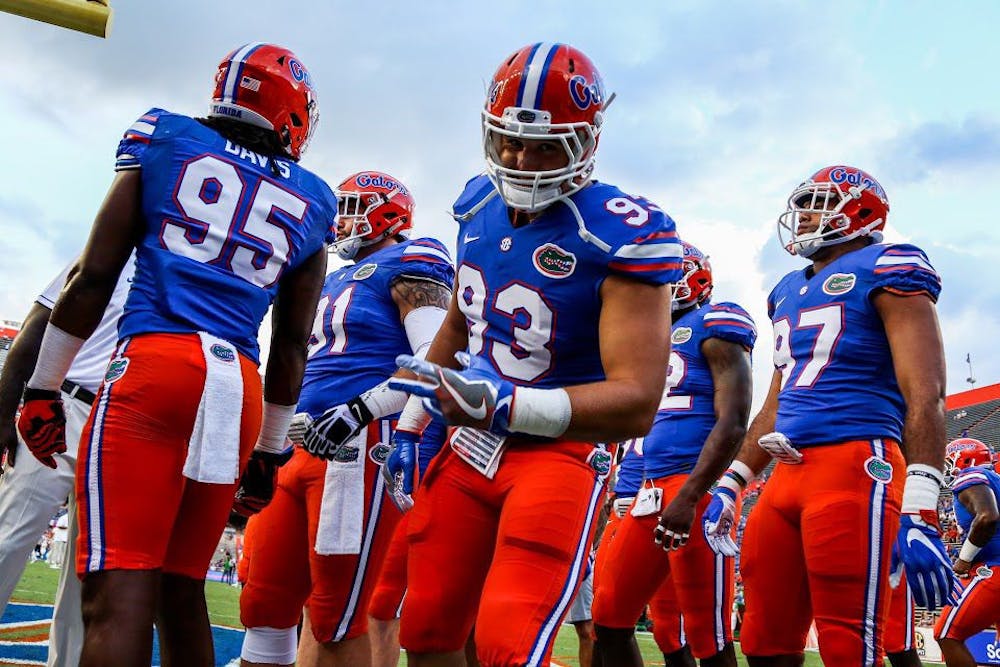There’s a lot to like about sports journalism.
There’re great stories about great athletes overcoming real hurdles in life, like a mother’s death or a disadvantaged upbringing. There’re fun pieces about the squeakiness of basketball shoes. There’s beautiful writing in the form of captivating — and sometimes illuminating — sports-centered narratives.
But there’s also a lot of absolute crap.
Venture over to BleacherReport.com right now and take a look at the home page if you’d like an example of what I’m talking about. You’ll find a page bursting with listicles, including a ranking of the NFL’s all-overpaid free agency team, an “upset meter” for the NCAA Tournament’s Sweet 16, and — the absolute pinnacle of sports journalism absurdity — a seven-round NFL mock draft.
What do these things have in common? They mean absolutely nothing.
They’re guesses. They involve no reporting and no new information. Somebody just sat behind a computer screen, put fingers to keys and cranked out a money-making story (much like I'm doing now, ironically enough). This is what a lot of sports journalism is, and in a way, it extends far beyond listicles.
For example, have you ever wondered how stories about the UF football team come to be? Well, allow me to walk you through it.
As a football reporter, you show up and wait until practice is over with a huddle of other beat writers. When a player is ready to talk, the gaggle of reporters approaches him — after consulting with team media personnel to make sure it’s OK in a way that resembles a child asking her mother if it’s OK to pet a caged goat — armed with recorders resembling stun guns and set up around him, not saying anything at first. Then questions begin.
Generally, they’re exactly what you’d expect. Every once in awhile somebody will come prepared with a surprising question, but for the most part, everything is almost scripted.
What do you think of the quarterback situation?
“I think we’ve got a couple of guys who can really play. They’re both gonna be fantastic.”
What do you think of your opponent?
“They’ve got a lot of good pieces and a lot of talent all over the field, so we’re really looking forward to the challenge.”
How have you seen INSERT PLAYER HERE improve?
“Well, he’s really gotten better across the board. He’s not the same player he was a season ago, and we’re happy to have him.”
Etcetera, etcetera, etcetera.
It’s so scripted that at times, players wonder aloud what they can and can’t say, even for seemingly mundane questions. For example, on Monday, UF defensive lineman Taven Bryan was asked if offensive lineman Brett Heggie was working with the first-team offense.
“Yeah,” he said. “I think so. Am I allowed to say that?”
This process leads to the stories that Gators fans consume every day, and I’m not trying to knock that. I write these very kinds of stories just about every day, and they’re important. They give fans the catharsis they need by allowing them to escape into sports for a while, even if the information they’re reading is contrived.
Plus, they’re reported. They’re the result of reporters asking players for new information, receiving it and writing about it. So why am I lumping them with mock drafts and upset meters when I just said the problem with those stories is the lack of reporting?
Because they often give you the same result. They’re cathartic, but they don’t make a lasting impact. They don’t make you think. If anything, they numb your mind.
And again, at times, that’s OK.
I’m not going to sit here at my pulpit of journalism expertise as a college newspaper sports editor and proclaim that everything that isn’t serious, well-reported and in-depth is worthless. Certainly that’s not the case.
But it’s definitely the case that such baseless, contrived stories can indeed be worthless if they dominate websites and control the sports media landscape.
And often times, as the Bleacher Report homepage shows, that seems to be the case.
Ethan Bauer is the sports editor. His columns appear on Wednesdays. Contact him at ebauer@alligator.org, and follow him on Twitter @ebaueri.
UF defensive tackle Taven Bryan before Florida's 32-0 win against North Texas on Sept. 17, 2016, at Ben Hill Griffin Stadium.






